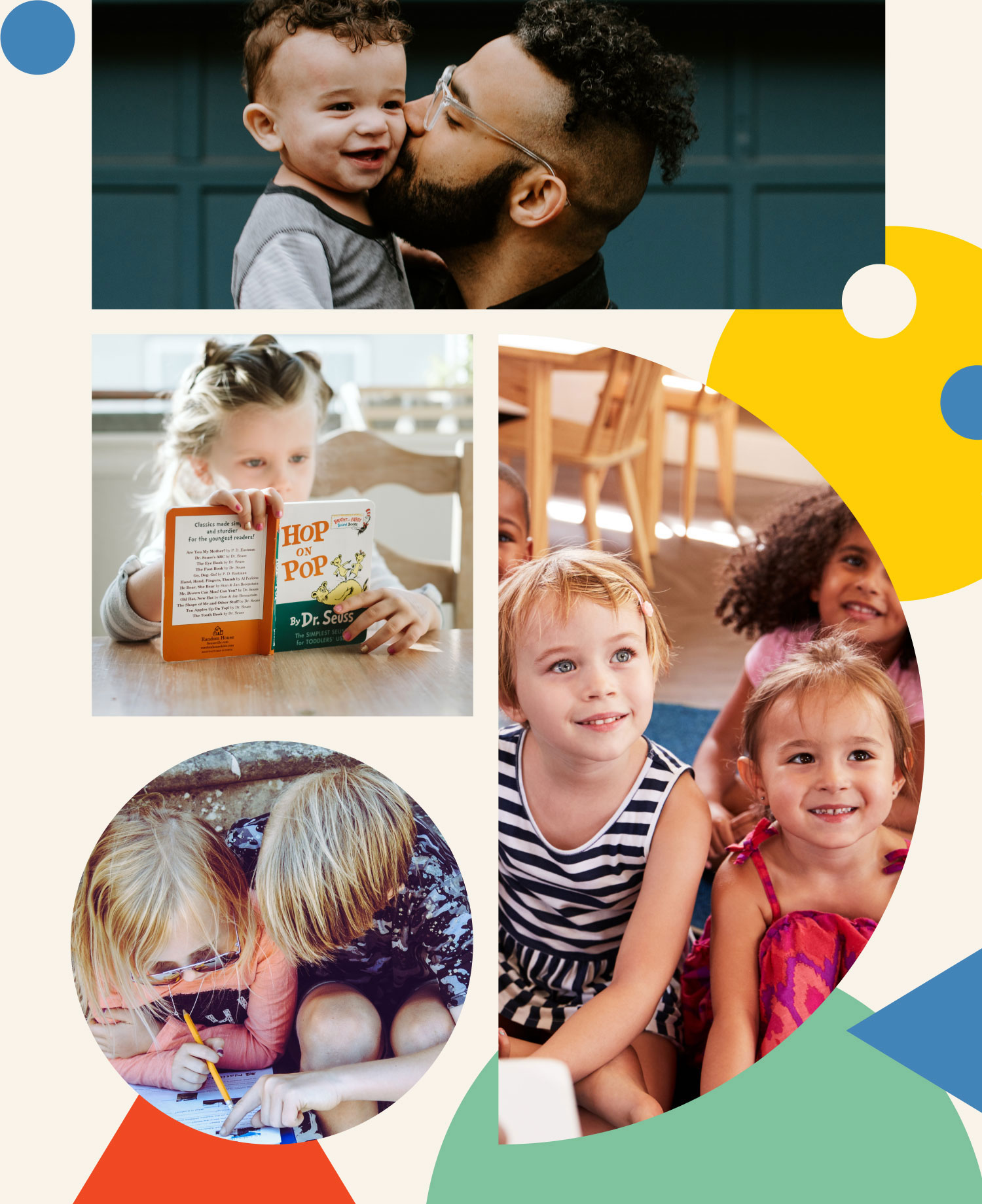AUSTRALIA’S EARLY LEARNING & CHILDCARE SYSTEM NEEDS REFORM.
And you can help make it all happen.
I have read and agreed to the terms of the Privacy Policy, the Collection Statement and the website Terms and Conditions.


And you can help make it all happen.
I have read and agreed to the terms of the Privacy Policy, the Collection Statement and the website Terms and Conditions.


The size of a child’s brain reaches 90 per cent of an adult’s by the age of five. Early childhood is a time of rapid change – particularly for the development of a child’s brain. These early years are critical for lifelong learning and well-being. Talking, reading, playing and singing with babies and toddlers is so important in shaping thinking and emotional patterns for life and influencing learning, relationships and resilience.
However, the importance of this development and learning process has been ignored by decision-makers who continue to treat our early learning and childcare system as a child-minding service for parents returning to work. It’s time the value of play-based learning is recognised by making Australia’s early learning system high-quality, universally accessible and attached to our public education system so that every child can benefit.
These early years are critical for lifelong learning and well-being. Talking, reading, playing and singing with babies and toddlers helps shape thinking and emotional patterns for life, influences learning, relationships and resilience.
A family with two kids in childcare can shell out $25,000 a year in childcare costs. Families who wish to work more than three days a week are discouraged because the costs are higher than wages earned.
16 per cent of centres do not meet the existing early learning quality standards.
It’s clear the system is not providing for all children and families.
A high-quality, universally accessible and affordable early learning system will allow parents, mainly women, to get back into the workforce and remove the financial barriers to women taking on full-time work. In doing so we will stop creating lifelong economic disadvantage for women caused in large part by our out-dated childcare funding arrangements.
Reform of early learning and childcare is the key economic reform that will drive workforce participation, productivity, GDP and government revenue.
Let’s make children, women, families and our economy the winners by delivering a new early learning system for Australia.
Ages 0-2
Taking on challenges
Encourage your child to move and stretch. Put them on their tummy on a blanket on the floor and place a soft, safe object in front of them saying, "Here’s your soft bear!" Put it down just out of their reach. Talk about their efforts: "You’re working so hard to reach your toy!"
Ages 0-2
Taking on challenges
Encourage your child to move and stretch. Put them on their tummy on a blanket on the floor and place a soft, safe object in front of them saying, "Here’s your soft bear!" Put it down just out of their reach. Talk about their efforts: "You’re working so hard to reach your toy!"
Your child is more likely to keep trying when focused on a clear goal they care about. By encouraging them to try, even when things are hard, you're preparing them to take on challenges in life.
Ages 2-4
Attention and focus
During bathtime sing your child’s favourite songs. You can make up your own song about what’s happening in the bath too. Are they pouring water from a cup, or pretending with a toy? Encourage them to sing their own song and respond to them.
Ages 2-4
Attention and focus
During bathtime sing your child’s favourite songs. You can make up your own song about what’s happening in the bath too. Are they pouring water from a cup, or pretending with a toy? Encourage them to sing their own song and respond to them.
When you ask your child to respond to the songs, you're helping them pay attention, while also making connections between what they already know and what you're asking. These connections help them organise information in new ways, which is very important to learning.
Ages 0-2
Relationships and communication
Even if your child doesn’t seem to understand, tell them everything you’re doing as you get them ready in the morning. Start with how you picked their clothes and go from there. Make eye contact and respond back to the sounds they make.
Ages 0-2
Relationships and communication
Even if your child doesn’t seem to understand, tell them everything you’re doing as you get them ready in the morning. Start with how you picked their clothes and go from there. Make eye contact and respond back to the sounds they make.
Think of yourself as a sports announcer - one who responds back with sounds and faces. These back-and-forth conversations are helping them bond with you and begin to associate words with their experiences.